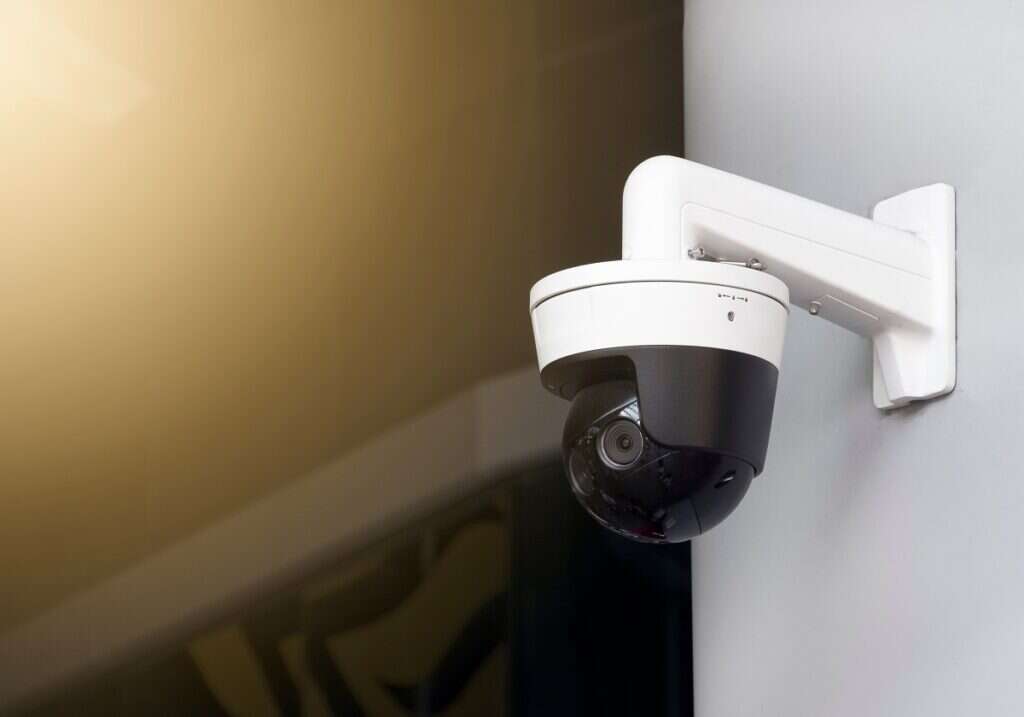
The UK government risks creating a “worrying vacuum” around safeguarding the public from the potentially harmful effects of biometric technology and surveillance cameras, the outgoing Biometrics and Surveillance Camera Commissioner (BSCC) has warned. Professor Fraser Sampson, who is leaving his post at the end of this month, was speaking ahead of the publication of a new report looking at the impact of the upcoming abolition of the BSCC’s office, and said the government’s lack of planning for the future is “tantamount to vandalism”.

Set to be published this week, the report, written by the Centre for Research into Information Surveillance and Privacy (CRISP) and seen by Tech Monitor, warns that not adequately replacing the role of the BSCC will leave the UK without proper oversight of the technologies.
The role of the BSCC, which operates independently of government, is being scrapped under the new data protection and digital information bill, the UK’s post-Brexit GDPR replacement. As reported by Tech Monitor, the legislation will also remove a requirement for the government to publish a surveillance camera code of practice, which sets out guidance for police and local authorities using cameras and facial recognition technology.
Under the bill, some of these responsibilities will be transferred to data watchdog the Information Commissioner’s Office (ICO) and other government departments.
UK left without surveillance camera safeguards?
The report, commissioned by the BSCC’s office following discussions with the Home Office, was authored by CRISP’s Professor Pete Fussey and Professor William Webster.
It identifies multiple areas where the government has not made provisions to replace the role of BSCC. These include reviewing police handling of DNA samples, DNA profiles and fingerprints, as well as setting out technical and governance matters for many public surveillance systems, including AI-driven products such as facial recognition technology. The BSCC also provides guidance on technical and procurement matters to ensure that future surveillance systems are of the right standard and purchased from reliable suppliers, a function which has yet to be reassigned elsewhere.
Commenting on the findings, Professor Sampson said: “After receiving this report, I am more concerned than ever that, unless the government acts soon, there will be a worrying vacuum in our arrangements for overseeing and regulating these crucial areas of public life just when society needs those safeguards more than ever.
“The lack of attention being paid to these important matters at such a crucial time is shocking, and destruction of the surveillance camera code that we’ve all been using successfully for over a decade is tantamount to vandalism.”
Professor Sampson added that the arrival of AI-driven biometric surveillance means “the line between what is private and public surveillance is becoming increasingly blurred.”
He said: “The technology is among us already and the speed of change is dizzying with powerful capabilities evolving and combining in novel and challenging ways.
“If we want to properly protect the privacy and rights of our citizens as well as realise the potential benefits of these types of technology now and in the future, what we need is for government to get a sensible grip on it in terms of oversight and regulation. Unfortunately, the opposite is happening and we are loosening the limited controls that we do have.”
The report says the government has made arrangements for the transfer and continuation of the quasi-judicial functions currently held by the BSCC. These cover deciding how police can retain DNA profiles of people arrested but not convicted of crimes, and reviewing national security determinations, which allow police to keep biometrics on national security grounds. These roles will be transferred to the Investigatory Powers Commissioner’s Office.
A Home Office spokesperson said: “The government is aiming to improve oversight of police use of biometrics and surveillance cameras by making it simpler and easier for the police and public to understand.
“This approach received overall support in responses to a public consultation in 2021, which took account of a range of views including those of the Biometrics and Surveillance Camera Commissioner.”
The government wants police to use more surveillance cameras
The abolition of the BSCC comes as government ministers advocate for the use of more surveillance and biometric technology by police.
An interim version of the report, published in May, highlighted that Chris Philp, the policing minister, had “expressed his desire to embed facial recognition technology in policing”. Speaking at the Conservative party conference earlier this month, Philp went further, suggesting police could access images from the passport database to help with their efforts to tackle crimes such as shoplifting.
Security concerns have also been raised about the widespread use of surveillance cameras. A survey conducted earlier this year revealed that police forces rely heavily on technology from Chinese manufacturer Hikvision and other vendors considered potentially problematic.
Hikvision is the largest CCTV manufacturer in the world but is partly owned by the Chinese government. In November 2022, Cabinet Office minister Oliver Dowden said devices made by the vendor and other Chinese-owned companies can no longer be installed in or on government buildings, dubbing them a “current and future possible security risk”.






